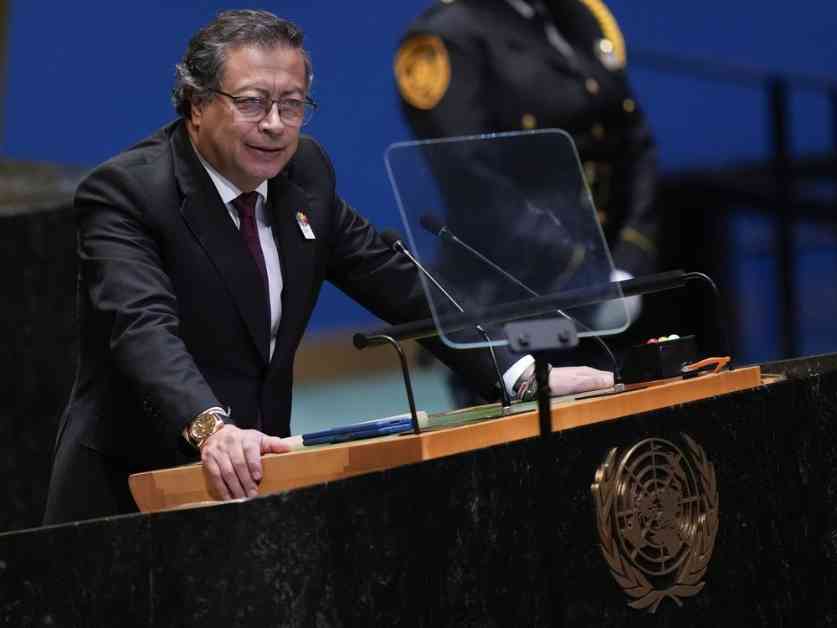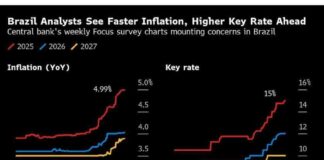Colombia President Cancels US Oil Venture for Environmental Reasons
In a bold move that sent shockwaves through the oil industry, Colombian President Gustavo Petro made the decision to cancel a joint venture between the state-run oil company Ecopetrol and a U.S.-owned company. This venture, expected to produce a significant 90,000 barrels of oil per day, was halted due to environmental concerns, specifically related to the controversial practice of fracking.
President Petro, known for his strong stance on environmental issues, took to national television to announce his opposition to the extension of a deal between Ecopetrol and Occidental Petroleum, or Oxy. The main point of contention was the extraction of oil through fracking, a method that has faced criticism from environmental groups for its potential harmful impacts on nature and humanity.
The President’s decision was met with both praise and pushback, highlighting the complex balance between economic interests and environmental conservation. This article delves into the details of this significant event, exploring the implications for Colombia’s energy sector and the global oil market as a whole.
Environmental Concerns Take Center Stage
During a televised address to the nation, President Petro made his stance clear on the issue of fracking, labeling it as “the death of nature, and the death of humanity.” This strong rhetoric underscored the gravity of the environmental concerns surrounding the oil extraction method, which involves injecting water, sand, and chemicals deep into the earth to release oil and gas trapped in rock formations.
The decision to cancel the joint venture with Occidental Petroleum was not made lightly, as it involved significant economic implications for both companies. Ecopetrol, a key player in Colombia’s energy sector, had planned to invest over $880 million in developing 91 oil wells in the Permian basin, a lucrative oil-producing region spanning Texas and New Mexico.
The move to halt the project and shift focus towards clean energy initiatives reflects a growing global trend towards sustainable practices in the energy sector. By prioritizing environmental conservation over short-term gains, President Petro sent a powerful message about the importance of responsible resource management in the face of climate change.
Industry Response and Future Outlook
Following the announcement of the joint venture’s cancellation, Ecopetrol’s shares initially rose by 2%, reflecting investor confidence in the company’s ability to adapt to changing market dynamics. However, the stock price experienced a slight dip after President Petro’s call for the agreement to be revoked, underscoring the uncertainty surrounding the future of Colombia’s oil industry.
Despite the setback, Ecopetrol remains a key player in the global energy market, with operations in multiple countries and a diverse portfolio of projects. The company’s commitment to sustainable practices and environmental stewardship will likely shape its future strategy, as it navigates the evolving landscape of the oil and gas sector.
As the world transitions towards renewable energy sources and cleaner technologies, the decision to cancel the US oil venture marks a significant turning point for Colombia’s energy policy. By prioritizing environmental protection and long-term sustainability, President Petro has set a precedent for responsible resource management that resonates far beyond the borders of Colombia.
In conclusion, the cancellation of the joint venture between Ecopetrol and Occidental Petroleum serves as a poignant reminder of the complex interplay between economic interests and environmental concerns in the energy sector. As the global community grapples with the challenges of climate change and resource depletion, bold decisions like this one are crucial in shaping a more sustainable future for generations to come.






















